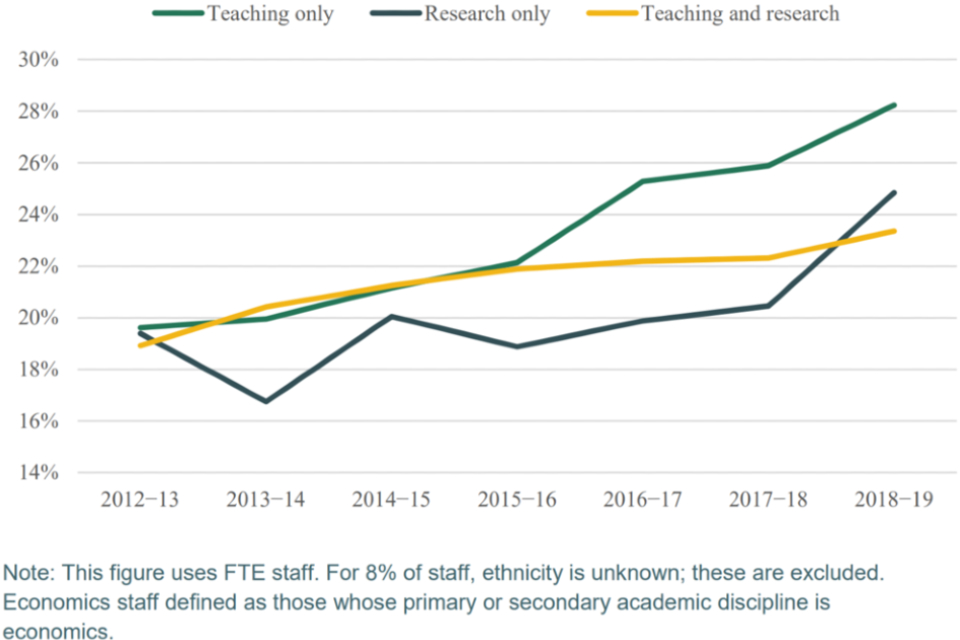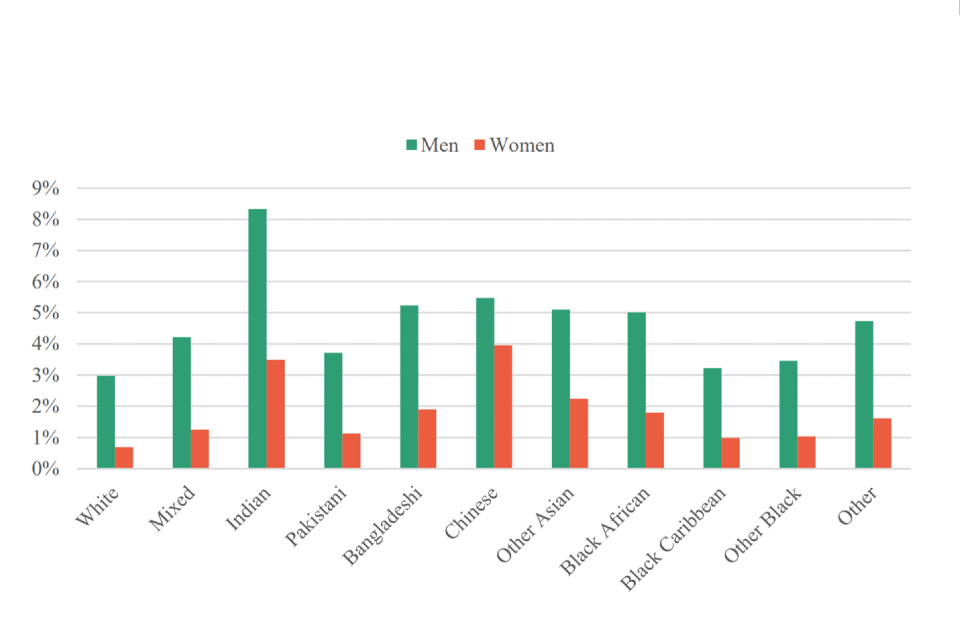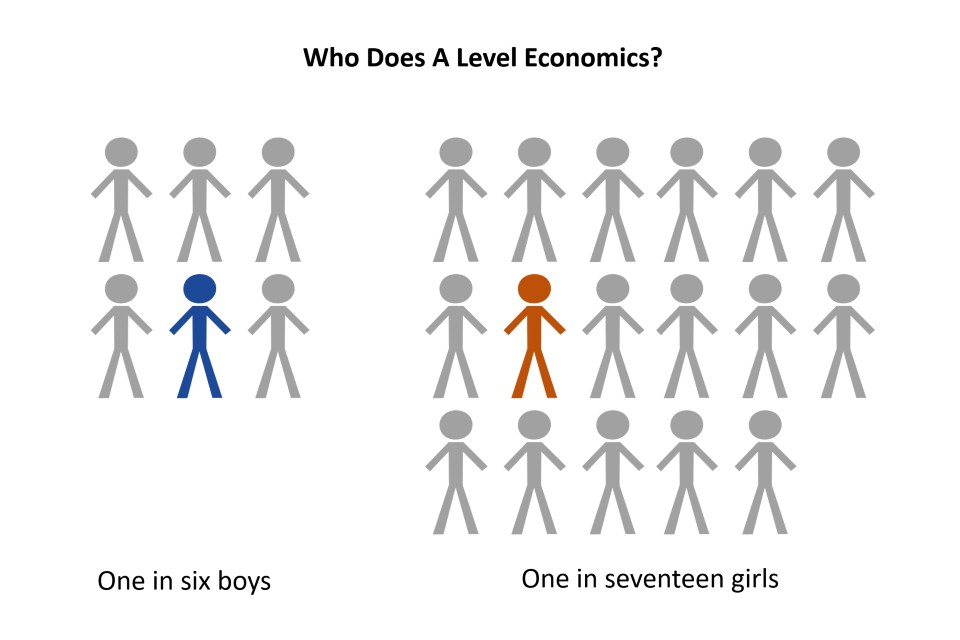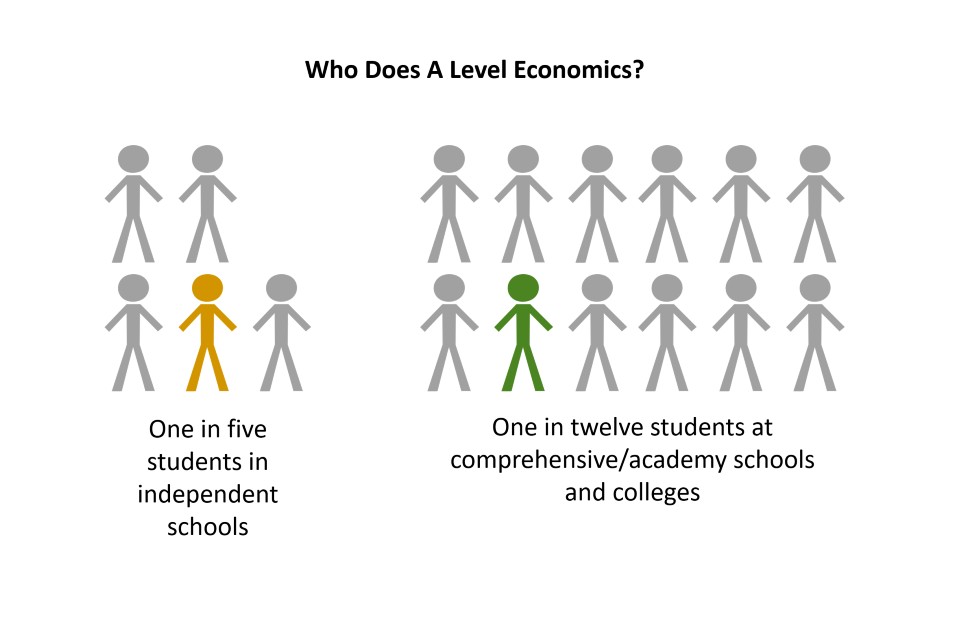Diversity in economics
Updated 22 February 2023
The Next Generation Economics Competition aims to improve diversity in the economics profession. Greater diversity will lead to better economists and smarter policy decisions.
This is why they have chosen to partner with the LSE-Gates Hub of Equal representation for this competition. The Hub is a team of economics researchers at the London School of Economics that focuses on improving representation of women and minorities.
Greater diversity provides new opportunities for people from different backgrounds and generates new ideas for tackling major economic challenges. This makes improving diversity an important government objective.
We encourage everyone to enter the FCDO’s Next Generation Economics Competition, whatever your background. If you have ideas about how this competition can encourage diversity more effectively, email us at NextGenerationEconomics@fcdo.gov.uk. We would like to hear from you and your school.
Data on diversity
An Institute for Fiscal Studies (IFS) report on ethnic diversity in UK economics concluded that despite significant progress over the last decade, there remains room for progress. Figure 1 (from the IFS report) shows that the share of academic economists from (non-white) ethnic minority backgrounds has been increasing since the 2012 to 2013 academic year, but black economists remain under-represented at UK universities.

Figure 1: Ethnic minority representation amongst academic economists
Amongst university students, there is also room for progress. Figure 2 (also from the IFS report) shows that although 18% of Indian undergraduates at university in 2018 to 2019 had an economics A level, the figure was just 6% for Black Caribbean students. The chart also shows that women in all groups are less likely to have an A-level in economics than men.

Figure 2: Among all undergraduate students, the share with an A level in economics
Other groups are also under-represented in the economics profession. Figures 3 and 4 (from VOXEU/CEPR shows that girls are less likely to take economics A-level than boys, and that state school pupils are less likely to study economics than private school pupils. As a result, women and state school students miss out on career opportunities. There is also a high risk that these groups are underrepresented in important jobs in both the public and private sectors.

Figure 3: Gender imbalance in economics

Figure 4: School background in economics
Why diversity matters
This lack of diversity matters because people from different backgrounds view the world differently. For example, a 2013 survey of economists in the US found that female economists held different views to male economists. In the survey, female economists were more in favour of government redistribution and were more likely to view gender inequality in the labour market as a problem. Economists with different personal and family experiences will spot different problems and solutions. Despite being under-represented, female economists continue to have an extensive impact on economics.
Because many economics students go on to become professional economists in governments, businesses and charity organisations, having a diverse range of people and opinions amongst economists is important. Professional economists provide advice on policies which affect millions of people, greater diversity amongst economists can lead to smarter policies and better outcomes.
Peter Henry, Ninth Dean of New York University Business School, speaking on the Capitalisn’t podcast said:
The same set of people look at the same set of problems for a couple hundred of years, there’s only so much innovation that’s going to happen.
To improve diversity, we want to show that economics is a wide-ranging subject open to everyone. This Next Generation Economics competition is an opportunity for you to explore big economic questions and learn more about the economics profession. We hope it inspires you to see economics differently and we look forward to receiving your entries.
Find out more about the Next Generation Economics competition.
